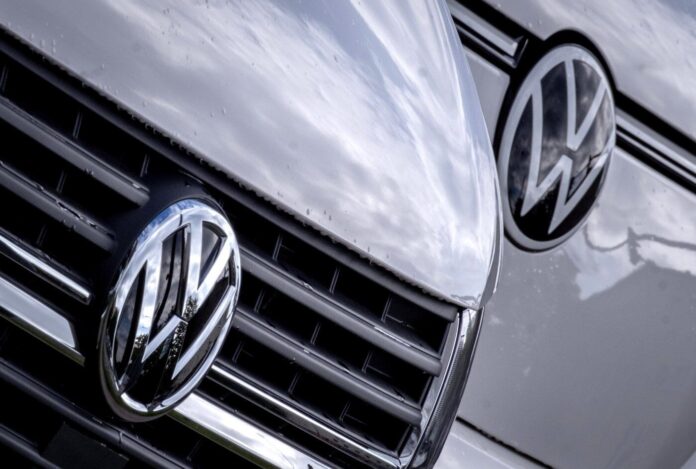(Reuters) – Volkswagen (VOWG.DE), opens new tab reported a 1.3-billion-euro ($1.5-billion) first-half hit from tariffs and cut its full-year sales and profit margin forecasts in the German carmaker’s first assessment of the damage from U.S. President Donald Trump’s trade war.
Global automakers have booked billions of dollars of losses and some issued profit warnings due to U.S. import tariffs. The European industry is also facing stiffening competition from China, and domestic regulations aimed at speeding up the electric-vehicle (EV) transition.
Volkswagen, Europe’s biggest carmaker, now expects this year’s operating profit margin between 4% and 5%, compared with a previously forecast 5.5-6.5% range. Full-year sales, earlier forecast to rise by up to 5%, are expected to be level with the previous year.
Volkswagen shares dropped after market open on Friday by as much as 4.6%, before paring their losses and turning positive as the day progressed. They were up 2.5% by mid-morning.
Investors had largely anticipated a guidance cut, after the company held off on assessing the damage of tariffs in the previous quarter.
CEO Oliver Blume told investors the company must intensify its cost-cutting efforts in response to the tariffs.
“We need to shift our cost efforts into high gear and accelerate implementation. After all, we cannot assume that the tariff situation is only temporary,” Blume said.
TARIFF RESPONSE
Volkswagen and its competitors are pressing European trade negotiators to strike a deal to reduce a 25% punitive tariff they have faced since April.

EU diplomats have indicated that the bloc could be moving towards a broad 15% tariff as it seeks to avoid a 30% levy from August 1. A deal struck between the U.S. and Japan earlier this week raised hopes for a similar agreement for Europe, boosting carmakers’ shares.
Volkswagen finance chief Arno Antlitz said the company’s profit margin would roughly land in the middle of its guidance with a Japan-style deal, which had a 15% tariff rate.
He warned, however, that the clock was ticking on finding a deal. “We are already in July, so the longer we go into the second half of the year, the more we tend to the lower end of the guidance,” he said.
Antlitz declined to comment on price increases when pressed by investors on how the company planned to protect its margins against the tariffs.
Volkswagen reported an operating profit of 3.8 billion euros in the quarter ended June 30, down 29% on the previous year, citing tariffs and restructuring costs, as well as higher sales of lower-margin all-electric models.
While Volkswagen was able to boost deliveries globally by 1.5% in the first six months of 2025, the group saw a decline of almost 10% in deliveries to the U.S.
North America sales revenue accounted for 18.5% of the carmaker’s global sales in the first-half.
Car sales data for June underpinned a broader slowdown in Europe’s struggling auto sector – and showed Volkswagen among the laggards as the company undergoes a major overhaul to cut over 35,000 jobs by the end of the decade.
Volkswagen Group includes VW’s core-brand passenger cars as well as luxury brands Porsche (P911_p.DE), opens new tab and Audi, which are particularly exposed to Trump’s tariffs given they have no production in the U.S. and rely heavily on exports.
($1 = 0.8515 euros)



















